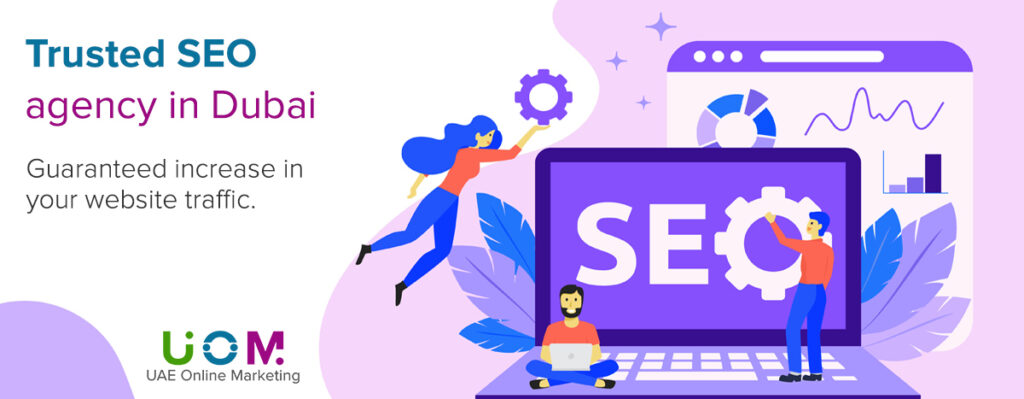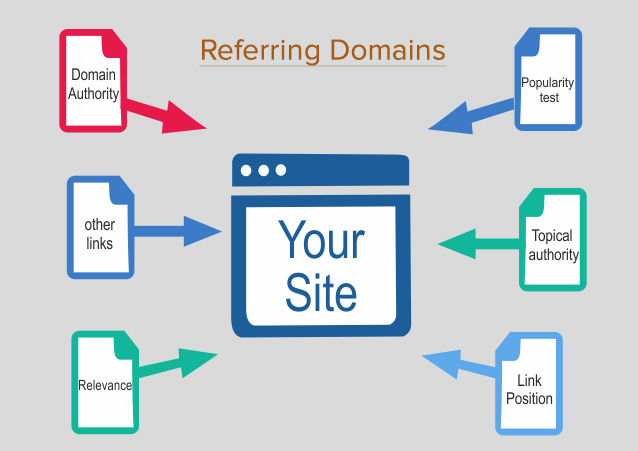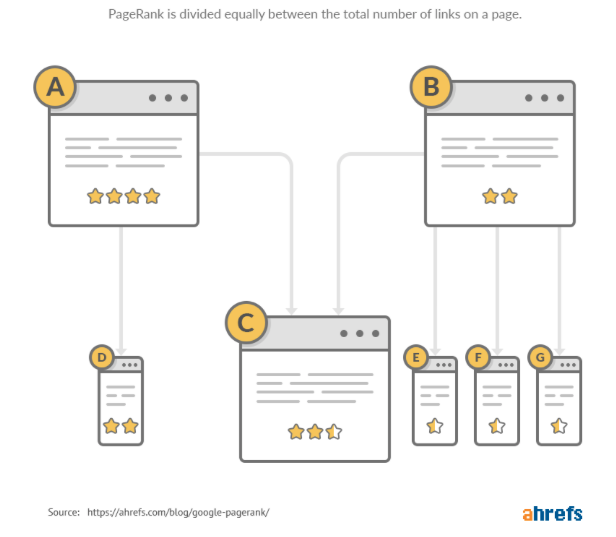Search Engine Optimization (SEO), as a company in UAE where do you start?

Search Engine Optimization also known as SEO in its short-form is the practice of increasing the quantity and quality of web traffic to your business or brand website through organic search engine rankings on search engines such as Google, Bing or Yandex.
Though Search Engine Optimization (SEO) is surely essential to online marketing success, some businesses are still hesitant when it comes to their SEO skill set. However, optimising your website for search engines doesn’t have to be scary or overwhelming. In fact, there are certain steps you can easily take today to boost your search engine rankings. Now is the perfect time to invest more heavily in your website and online presence in order to see the rewards.

So, how SEO works?
When you put in the keywords or the phrase you’re searching for on the search box the following happens:
The Google bot will crawl into different websites online looking for content that matches your keywords. After this, the bot will start indexing the related results which can be in the millions. Then based on various factors like the quality of backlinks you have, the Googles algorithms will rank the different results in search pages.
The goal of SEO is to appeal to Google’s bot by adhering to Googles or any other search engine’s best practices.
Why you should include SEO in your digital strategy?
- SEO is the best way to gain free organic traffic to your website
SEO doesn’t need you to pay for anything. In fact, it’s like an investment that bears more fruit over time. - Increase in Credibility & Trust
Most customers will trust search results on the first page of Google. Take a minute and remember the last time you clicked on a result on page 3. - Expandability in Return on Investment
The benefits of SEO are trackable and quantifiable. You can continue streamlining your assets and you can continue growing over time. - For a Long-Term Results
Paid ads only serve their purpose when you’re injecting money into them but SEO lasts much longer.
Search Engine Optimization (SEO) practices for online platforms
There are essentially 3 forms of SEO practices for online platforms such as websites or mobile apps – On-page SEO, Off-page SEO and Technical SEO.
A) On-page SEO
On-page SEO (also known as “on-site SEO”) is the practice of optimizing web page content for search engines and users. Common on-page SEO practices include optimizing title tags, content, internal links and URLs. On-page SEO involves all the on-site techniques you can employ to ensure a webpage will rank on a search engine results page (SERP), and it can also help determine how well that page ranks.
There are many different aspects and functionality of a webpage that can be optimized to deliver better results from your website:
- Title tags
- Heading Tags (H1, H2, H3, H4 etc)
- URL structure
- Alt text for images
- Site speed (Important)
- Internal linking
- Keyword depth analysis
- Meta descriptions
- Device Responsiveness
B) Off-page SEO
Off-page SEO (also known as ‘off-site SEO’ refers to actions taken outside of your own website to impact your rankings within search engine results pages (SERPs). This activities involve improving search engine and user perception of a site’s popularity, relevance, trustworthiness, and authority. Off-page SEO embodies any efforts taken outside of a website to improve its search engine rankings.
Link building is a big part of this, but it goes way beyond that.
The success of Off-page SEO depends on the following factors:

Number of referring domains
Not only does having more links from unique websites (referring domains) equate to higher rankings, but also more organic search traffic.

Link authority
Not all links are created equal. Quality matters.
This fact is built into the way PageRank works. The higher the “authority” of the linking page, the more authority it passes onto the pages to which it links. In other words, a link from a high-authority page is worth more than one from a low-authority page.
Understanding the SEO Process
SEO is not a destination but an inherently iterative process. It doesn’t start and finishes with just the above few steps you have to constantly monitor your keywords and improve your assets. Some of our clients think as if success is right there for the taking – just a few magical tricks away. SEO (and most forms of digital marketing) is a process that, with patience and strategy, will bring you the promise of new traffic, leads, clients, revenue, and growth.
Step 1: Your Website Auditing
Always begin with a technical and/or a content audit.
- Website Speed (Most Important)
- The number of organic keywords you rank for.
- The overall website SEO score
- Number of backlinks () follow and no follow)
- Do you need to eliminate, repurpose, or rewrite your content to get the relevant traffic.
Step 2: SEO Competitor Analysis
Study up on what your high-ranking competitors are doing right. Pay attention to what keywords they rank for and how their website is optimised. Some of the information we can help you get and understand about your competitors includes:
- Their traffic sources: Where is their traffic coming from.
- Affiliates: who are their digital influencers.
- Where they get their backlinks from.
- What content they produced that got the most engagement on different platforms
Step 3: Keyword Planning & Research
Furthermore, to rank up on Google, you need to understand what people are searching for. What keywords you should use. Keyword research remains incredibly useful.
Optimizing your content around high-value keywords is what will get you in front of your potential clients or customers when they need you most.
You can easily use Google’s keyword planner to see what keywords Google attributes to your website. This will help you get a better idea of what keywords you should be focusing on and how you can implement them in the future. You can also use this tool to see search volume and competition of certain keywords, helping you plan new content.
Step 4: Social Media Activity
Google doesn’t just pay attention to your website when ranking it on the SERPs. It also tracks the number of likes, comments, and shares you receive on your social media platforms. Make an effort to post interesting content at least once a day.

In the end…
You have to follow a process to get to where you want to be.
You have to have a plan and put the work in if you’re ever going to achieve your goals.
So it’s time to stop driving blindfolded and hoping you reach your destination.
Get in touch with us for relevant SEO growth.
